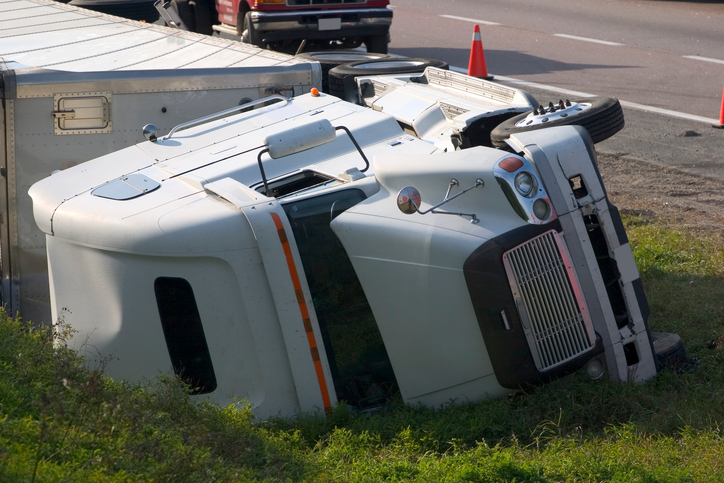TUESDAY, FEBRUARY 19, 2019

As a trucker, you operate a business on wheels. You strive to do so safely. You don't want anything bad to happen during the course of duties. If it does, then you might put yourself, the vehicle, cargo and other people in harm's way. You likely carry trucking insurance for that very reason. Yet, even with coverage, you may face costs out of your own pocket. What are these? Can you do anything to protect yourself further?
Trucking Insurance Won't Cover Everything
Your trucking policy will usually pay a significant chunk of costs you might experience from trucking hazards. Covered accidents might run the gamut from wreck damage to theft, injuries, cargo losses and injuries to others. Your policy will even pay for all the costs of losses in many cases. That's why it is such important financial protection for all truckers.
Even so, your policy won't cover every cost from every scenario. If it does not, then you might face out-of-pocket costs yourself. The more you have to pay, the more money you and your business might lose. That could spell a commercial disaster, and you might struggle to recover from the losses. Therefore, you should examine your policy to find out what costs are your job to cover.
Your Standard Trucking Insurance Costs
All trucking insurance costs money. You must pay certain costs for the benefits provided by your coverage. Often, your policy will list these costs. They might include:
- Premiums: The premium is the cost you pay for your policy to remain in force. You usually pay monthly, quarterly, or in-full. The premium will vary from policy to policy. It might change based on the value of the truck, your operating risks and even the location where you work. Generally, those with higher driving risks will pay more in premiums. Premiums will also usually change over the years.
- Deductibles: If you file a claim, your policy might not pay 100 percent of the claim cost. It will often expect you to pay a chunk of the claim itself. This is a deductible. For example, you might have a $2,000 deductible on your trucking policy for collision damage. So, let's say you have a wreck that causes $10,000 in damage to your truck. You will have to pay the first $2,000 (the deductible) while your policy will cover the rest of the claim. In this case, it will pay $8,000 since $10,000 - $2,000 = $8,000. Your policy might include several deductibles based on different coverage elements.
Other fees and costs might also apply in special cases.
You usually have options to keep these costs affordable. For example, you usually have leeway to select a deductible that meets your needs. However, carrying a low deductible might raise your overall premium costs. Give this fact special consideration when making choices.
Don't hesitate to ask your agent to apply policy discounts, which equal percentage savings, that might reduce your premium. Usually, the lowest-risk drivers receive the most discounts.
You Pay if You Don't Have Enough Coverage
Sometimes, you won't have coverage available to cover certain losses. These scenarios might include:
- Excluded items: Certain policies explicitly list only the claims that they will cover. Others will list the items they will not cover. These lists help you determine policy exclusions. Exclusions won't have coverage, and you won't be able to use your policy to pay for them. For example, trucking policies usually don't pay for damage from normal wear and tear. That is your responsibility.
- Non-existent coverage: Most truckers have to carry certain amounts of insurance, by law. Yet, the required coverage generally isn't enough to cover all the damage you might want to claim on your policy. Therefore, policies usually offer many optional elements to help you cover additional losses. Yet, if you choose not to carry this coverage, then you might not have protection for certain losses. For example, if you don't carry collision insurance, your policy likely won't cover truck damage resulting from a wreck.
- Low coverage limits: Policies will pay maximum dollar amounts for most claims. However, that's no guarantee that the cost of the damage will fall within that limit. So, if the sums listed in your policy fall below the total damage costs, you might have to pay the difference. Simply put, if a wreck causes $35,000 in liability losses, but you only have $25,000 coverage, you might have to pay the excess $10,000 yourself.
Sometimes, a type of insurance called umbrella coverage might help you when your policy can provide no more coverage. Umbrella coverage is extra liability insurance that steps in once you surpass the limits of your standard policy. It might cover remaining liability costs and scenarios not covered by a regular policy. So, don't hesitate to include it on your trucking insurance. Contact us to get a Georgia trucking insurance quote at 855-218-6308.
No Comments
Post a Comment |
|
Required
|
|
Required (Not Displayed)
|
|
Required
|
All comments are moderated and stripped of HTML.
|
|
|
|
|
|
NOTICE: This blog and website are made available by the publisher for educational and informational purposes only.
It is not be used as a substitute for competent insurance, legal, or tax advice from a licensed professional
in your state. By using this blog site you understand that there is no broker client relationship between
you and the blog and website publisher.
|
Blog Archive
2025
2024
2023
2022
2020
2019
2018
2017
2016
2015
2014
2013
|